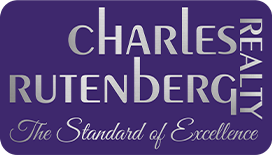
Profit sharing has transformed how businesses reward their top performers across various industries. Companies, including those in the manufacturing, technology, and service sectors, all utilize this sharing model to foster deeper relationships with their teams. It’s such an efficient system because it aligns individual success with the companies. When teams contribute to the profitability of a company, everyone benefits together.
Real estate brokers can also use this strategy to build thriving long-term businesses. It’s when agents feel truly invested in their company’s growth that the real estate industry thrives. Moreover, strategic profit sharing fosters a mutually rewarding partnership between brokers and agents.
Understanding how profit sharing works helps real estate professionals make better career decisions. Many agents don’t realize how these programs can fast–track their wealth-building aspirations. So today, we’re taking a look at what profit sharing for real estate brokers is all about. We’ll break down how profit share is calculated and what makes these programs so beneficial.
What Is Profit Sharing for Real Estate Brokers?
The real estate profit–sharing model functions differently from traditional brokerage payment methods. Initially, agents receive their standard commission splits after they successfully close deals. Subsequently, they get profit share bonuses at the end of the year, which is contingent on the company’s performance.
What sets real estate profit sharing apart is its foundation in true collaboration and teamwork. Agents no longer focus solely on personal sales numbers. Instead, they help their company grow through collaboration and the sharing of knowledge.
For example, seasoned agents can readily provide tips for selling a home to newer, less experienced team members. Or, newer agents can suggest fresh ideas that better suit today’s generation of customers. Ultimately, market centers that offer profit sharing tend to have stronger communities overall. This collective effort nurtures a culture of company-wide success that strengthens and rewards all of those within it.
Beyond individual transactions, the profit-sharing program also rewards those who consistently exceed expectations. Agents who refer new clients, mentor team members, or streamline office operations are more commonly recognized for their contributions. This is the key factor that transforms independent contractors into invested business partners.
Is Profit Sharing Good for Real Estate Brokers?
Profit sharing isn’t just good for real estate brokers—it’s a powerful tool that can elevate both individual and company-wide businesses. However, the success of this system is highly dependent on both the brokerage’s profitability and management. Here is a brief overview of both the advantages and disadvantages.
Ultimately, profit-sharing is an excellent source of passive income. The more an experienced broker can recruit and engage with new agents, the higher their profit shares will be. This is an advantage that extends far beyond an active career.
As a result, the program encourages further recruitment. If a broker knows that they will be financially compensated for the extra effort, they are more likely to embrace further opportunities. And as a result, this fosters collaboration and company loyalty. When a brokerage or company invests in its agents and brokers, they are willing to invest tenfold in return. This fosters an environment where professionals can and will want to grow together.
However, the success of profit-sharing is highly dependent on the brokerage’s profitability and management strengths. If a brokerage isn’t doing well after all expenses have been deducted, this directly reflects on the agents. Regardless of how much those within the company contribute, they will receive no excess revenue. Additionally, profit-sharing can become less valuable if newer, less productive agents receive similar commissions to top performers.
As an industry professional, carefully evaluating your options and selecting a highly-rated business is essential for driving personal growth.
How Does Profit Sharing Work for Real Estate Brokers?
As a real estate broker, understanding the mechanics of profit sharing helps you evaluate potential brokerage opportunities that can advance your career. Here is how it works:
Annual reviews determine eligibility.
Most real estate companies conduct annual reviews to determine profit–sharing eligibility. Brokers must meet specific performance standards throughout the year, which typically include transaction volume, client satisfaction scores, and team collaboration metrics.
Furthermore, companies require brokers to be active for the whole year. Those who join mid-year may get prorated benefits based on their tenure. These standards encourage brokers and agents to commit to their chosen brokerage long-term.
Profits are distributed based on contribution levels.
Market centers calculate total profits after all expenses and investments have been taken into account. The real estate company then takes a percentage of those profits and distributes it among eligible agents. Agent contributions determine how much each person gets from that pool.
Higher-producing agents receive a larger share of the profit. However, companies also reward agents and brokers who contribute beyond just sales numbers. Those who support the business by mentoring fellow agents, improving internal systems, or generating referrals are often highly recognized and generously compensated for their impact.
Payments are made according to the company’s fiscal calendar.
Most brokerages distribute profit shares after completing annual audits, a process that typically takes place in the first quarter of the following year. During this time, brokers receive detailed statements outlining exactly how their individual payments were calculated.
Some companies opt for quarterly profit share distributions, providing their agents with more frequent rewards. With this, agents are also more likely to feel a consistent sense of progress. Overall, this structure helps with cash flow while maintaining long-term incentivization.
How Is Profit Sharing Calculated for Real Estate Brokers?
Profit–sharing calculations vary depending on the company and the market center in which an agent or broker resides. Most brokerages employ a multi-tiered points system that assigns varying weights to different performance factors. Knowing these calculations can help industry professionals maximize their earnings—including passive income.
Within the points system, transaction volume remains the most significant factor in the profit-sharing formula. Agents and brokers can earn points for every closed deal throughout the year. Naturally, higher-value transactions result in a larger number of points compared to smaller sales volumes.
Additionally, agents with longer tenure at a company may receive supplementary multipliers. This approach is designed to prioritize and reward those who have committed to building long-term careers. Beyond longevity, many profit-sharing programs also factor in team activities when calculating rewards. Training new members, referring clients to other agents, and sharing expertise are a few examples of activities that fall under this category.
The actual profit share is based on the company’s net profit after expenses. The company will subtract operating costs, marketing investments, and growth reserves from the total revenue. The remaining profit, combined with accumulated points, forms the profit pool that is subsequently distributed.
Ultimately, most real estate companies cap profit sharing at reasonable percentages of total profit to maintain reserves for future growth investments. This balance ensures that professionals within the company can enjoy the benefits while the brokerage remains financially stable. This is how long-term success is built.
Agents who understand how profit sharing works position themselves to make even more money.
When agents contribute to their real estate company’s growth, everyone benefits from increased profits. This win-win approach fosters stronger, more collaborative business environments for all those involved.
Charles Rutenberg Realty understands the power of profit share in building successful careers. This is why one of our goals is to teach agents and brokers to consider profit share when choosing their next brokerage. Furthermore, we also educate companies on the importance of offering these programs for improved long-term wealth-building potential.
If you’re ready to support a thriving career and maximize your opportunities, contact us today. We can provide the tools, training, and resources real estate agents and brokers need when selecting, operating, or managing profit-sharing systems.





